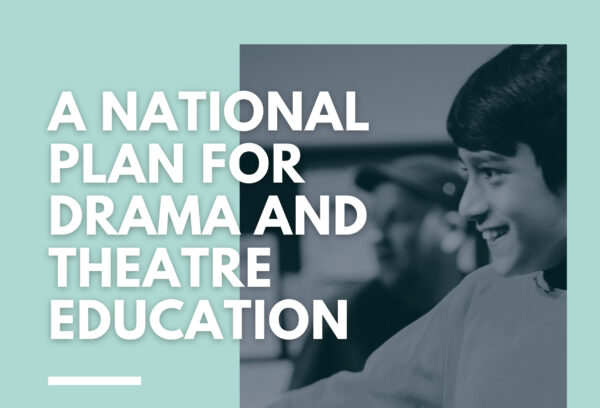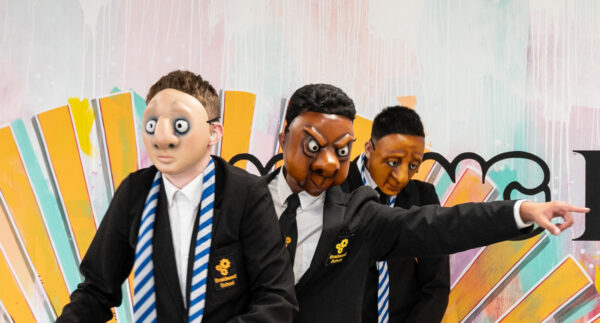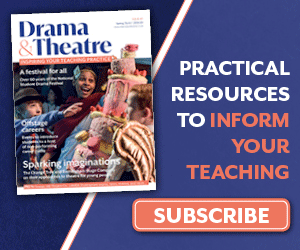For the third year running this welcome highlight of the drama teachers year returned to the National Theatre. This year we were treated to a variety of workshops – many led by associates of the National itself. As usual it is not possible to experience all the sessions on offer but I very much enjoyed workshops led by director Lyndsey Turner, puppeteer Robin Guiver and an introductory lesson on unarmed stage combat led by Lisa Connell. These sessions gave me new ideas that I will be able to use immediately in the classroom upon returning to school next week as well as inspiration for projects in the future. Graeae, Little Bulb and Curious Directive Theatre companies were also in attendance and there were other sessions on technical design, music making, Shakespeare, using dialect, vocal warm ups, games, and contemporary practitioners. This year we were treated to a performance of Macbeth and there was a choice of performances to see in the evening – Twelfth Night featuring Tamsin Grieg as a much anticipated Malvolia or the highly acclaimed Us/Them. There were also opportunities to take a backstage tour or participate in a Q and A with the cast of Macbeth.
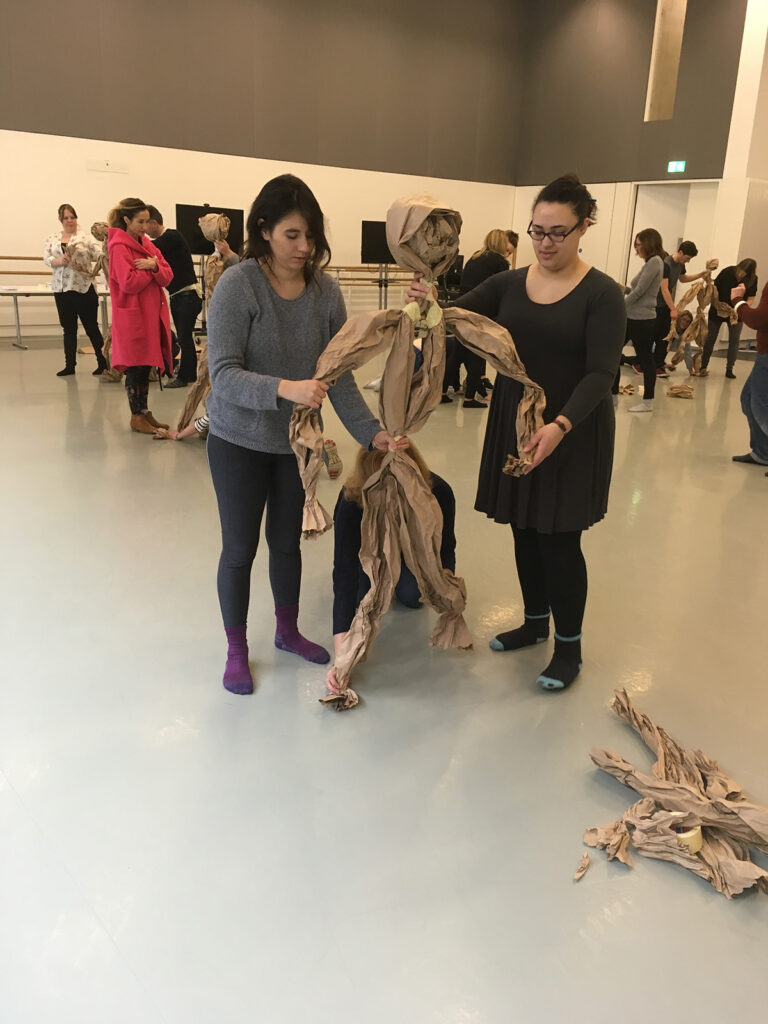
It is a whirlwind of a conference and this year in particular felt very rushed. The sessions were informative and enjoyable and I enjoyed brief snatches of conversations with fellow teachers over the short lunch break and to or from the workshop venues. However, I missed the opportunity for group discussions that there were in 2016 and I hope that the organising team will restore these next year. It is, of course, impossible to do everything and nothing should detract away from the fact that this is an inspirational way for a passionate drama teacher to spend two days of their half term but I did feel that we would have appreciated the chance to share experiences with each other on a wider scale and not simply just one to one or in small groups.
The importance of collaboration and sharing of experience was made starkly apparent during the plenary session. This began as a harmless q and a with some actors of varied experience. After some initial testimonials about their early experiences of drama and how they had got into acting, my fellow ND executive committee member Ali Warren asked a questions pertinent to us all at this critical time – ‘how do you feel about the fact that Drama is on the decline in schools and many children will have no access to drama education in the near future?’ We knew to expect a negative response but the replies ‘raging’ and ‘physically sick’ strongly summed up the feelings of those present. Jane Ball, Secondary and FE manager at the National, stressed several times that they are ‘passionate that drama should be taught in schools by specialist Drama Teachers’ and there was clearly support for, and appreciation of what we do on a day to day basis. However, the fact remains that – despite a recent report suggesting that the Ebacc has not had a negative impact on the take up of Arts subjects at GCSE and, therefore, beyond – the first hand experiences of the vast majority of those teachers present strongly indicates that Drama is facing tough times in state schools across the length and breadth of Britain. (One teacher spoke to me of how she is desperately forging cross curricular links with other subjects, teaching only what they want rather than what she feels she should be teaching, in an effort to be seen as ‘essential’ to her senior management team and, consequently, be spared the axe) It is my opinion – one I believe I share with many colleagues – is that collaboration between teachers, professional organisations like the National Theatre and subject associations such as National Drama will be one of the ways in which we can gather public support and raise awareness of the true current situations in our schools. Passionate comments from the panel included ‘creativity can change lives’, ‘the government needs to acknowledge that Arts are essential and not just the icing on the cake’ and ‘I do not want to feel intellectually inferior because of my love of, and skills in, the Arts’. This last will strike chords with Drama teachers who are forever defending the subject against preconceptions that it is ‘easy’ and ‘soft’. The rigorous intellectual demands of the A Level and GCSE Drama courses – particularly in the light of recent curriculum changes – mean that our subject is one which students can undertake, safe in the knowledge that they will get that coveted university place and can compete with their peers who have only traditionally ‘academic’ A Levels. Here I have to digress somewhat to report several conversations which happened after the formal plenary had finished where many teachers shared the success stories of their students who successfully went on to study a wide variety of subjects at university – Law, Medicine and Engineering – to name but a few. It would seem that those in higher education as well as those in industry value those ‘soft’, ‘transferable’ skills taught in Drama rather more than those in Government currently do!
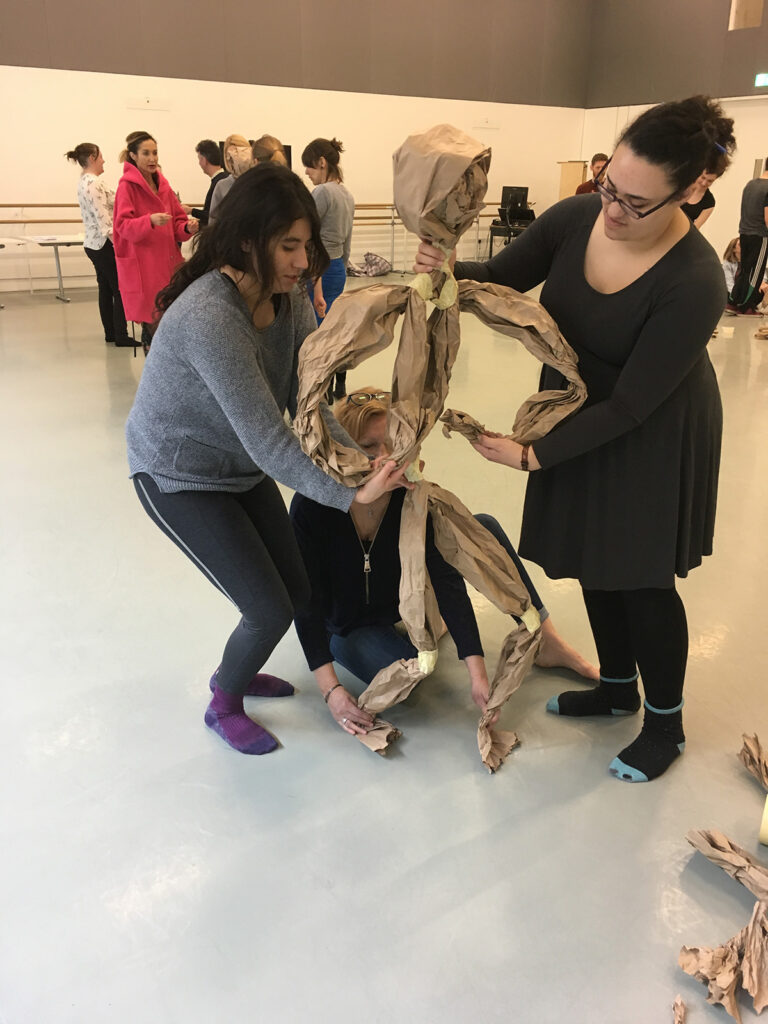
Of course it is easy to spend two days ‘fired up’ by the issues only to quickly become swallowed by the daily grind of school life – as one colleague remarked ‘I had this same conversation last year and I have done nothing about it since’. But it has never been more important to fight for our place in the curriculum – for ‘STEAM not STEM’ for a ‘Bacc for the future’, for the rightful place that the Arts should have in the education of all our children. Get involved in any way you can – a good start is to join National Drama (forgive the shameless plug but we are your organisation – designed to represent your views and interests at every level) Tell us how we can help you. Get involved with the National Theatre or with your local theatre, write to your MP (there are template letters to be found on the ‘bacc for the future’ website). Get your school and your parents to join the campaign – together we are stronger and, together, we will survive this latest storm!
Finally, it remains for me to thank Jane Ball, Andrew Pritchard and all the staff at the National Theatre for hosting this year’s conference. We are already looking forward to 2018 when, hopefully, we will have more positive tales to tell!
Kate Nash
Photo credit: Kate Nash

